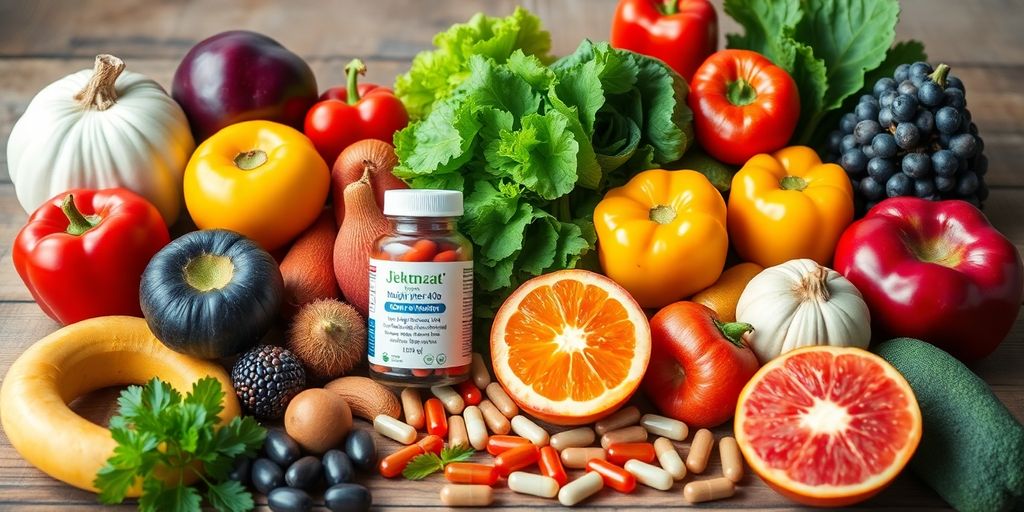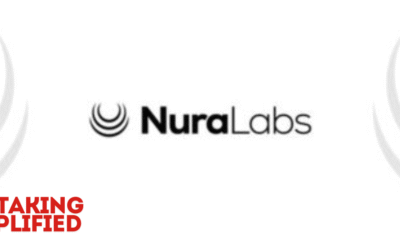Health & Fitness
Discovering the Best Multivitamin for Women Over 40: Essential Nutrients for Optimal Health

As women enter their 40s, their bodies undergo various changes that can impact their health and well-being. This decade often brings hormonal shifts, changes in metabolism, and an increased risk for certain health conditions. To navigate these changes effectively, it’s vital to pay attention to nutritional needs. Finding the best multivitamin for women over 40 can play a significant role in supporting overall health, energy, and longevity. This guide will explore essential nutrients, how to choose the right multivitamin, and the balance between food and supplements for optimal health.
Key Takeaways
- Women over 40 have unique nutritional needs due to hormonal changes and increased health risks.
- Key nutrients include antioxidants, B vitamins, vitamin D, and vitamin K to support overall wellness.
- Choosing a multivitamin should involve looking for bioavailable forms of vitamins and avoiding unnecessary additives.
- Whole foods should be prioritized, but supplements can help fill nutritional gaps when needed.
- Consulting with a healthcare provider can help tailor supplement choices to individual health needs.
Understanding the Nutritional Needs of Women Over 40

It’s true, as we hit our 40s, our bodies start changing, and what we need nutritionally shifts too. It’s not just about calories anymore; it’s about getting the right vitamins and minerals to keep everything running smoothly. I’ve been doing some digging, and it’s pretty interesting how specific our needs become.
Common Symptoms of Nutrient Deficiencies
Okay, so how do you even know if you’re missing something important? Well, some signs are pretty common. Feeling tired all the time, even after a decent night’s sleep? That could be a sign. Also, keep an eye out for these:
- General fatigue
- Reduced immune function
- Changes in mood and memory
- Increased risk of conditions like Type 2 diabetes and heart disease
It’s easy to brush these things off as just getting older, but they could be your body telling you something’s up. Making sure you get the best multivitamin for women over 40 can help address these deficiencies.
Micronutrient Testing Options
Honestly, guessing isn’t the best way to go about this. Getting tested can give you a much clearer picture of what you’re actually lacking. There are a few different tests out there, and it’s worth looking into which one is right for you. Here are a few options:
- NutrEval FMV by Genova
- Micronutrient test by SpectraCell
- Cellular Nutrition Assay by Cell Science Systems
It’s important to remember that these tests can vary, so it’s best to pick one and stick with it to track your progress over time. This way, you’re comparing apples to apples and can see if your diet or supplements are actually making a difference.
The Importance of a Balanced Diet
Supplements are great, but they’re not a magic bullet. A balanced diet is still the foundation of good health. Think lots of fruits, veggies, lean protein, and whole grains. Supplements are there to fill in the gaps, not replace real food. It’s like, you can’t build a house with just the finishing touches; you need a solid base first. So, focus on eating well, and then use supplements to give yourself that extra boost. Don’t forget that folate supports immune function and red blood cell formation.
Key Nutrients for Women Over 40
As women enter their 40s, their bodies change, and so do their nutritional requirements. It’s not just about preventing deficiencies; it’s about optimizing health for the long haul. While a balanced diet is the foundation, a good multivitamin can help fill in the gaps. Let’s explore some key nutrients that women over 40 should prioritize.
Antioxidants: Fighting Free Radicals and Slowing Aging
Antioxidants are your defense against oxidative stress, a major contributor to aging and chronic diseases. They work by neutralizing free radicals, unstable molecules that can damage cells. Think of them as tiny bodyguards protecting you from the inside out. Here are some important ones:
- Vitamin A (Beta-Carotene): Supports vision, skin health, and immune function.
- Vitamin C (Ascorbic Acid): Boosts immunity, promotes wound healing, and supports brain function.
- Vitamin E (Tocopherol): Protects cells from damage and supports skin health.
Incorporating antioxidants into your daily routine can help slow down the aging process, reduce inflammation, and support overall vitality. It’s like giving your body a tune-up to keep it running smoothly.
B Vitamins: Energy and Brain Health
B vitamins are a group of essential nutrients that play a vital role in energy production, brain function, and metabolism. They’re like the engine that keeps your body running smoothly. The best multivitamin for women over 40 should include:
- Vitamin B6 (Pyridoxine): Supports brain health and helps convert food into energy.
- Vitamin B12: Crucial for red blood cell formation and nerve function. Absorption decreases with age.
- Folate (Folic Acid): Supports DNA synthesis and red blood cell production.
These vitamins are particularly important for women over 40, as they help combat fatigue, support cognitive function, and reduce the risk of anemia. It’s like giving your brain and body a boost of energy.
Vitamin D: Bone Health and Beyond
Vitamin D is essential for calcium absorption, which is crucial for maintaining strong bones and preventing osteoporosis. Women over 40 are often deficient in vitamin D due to reduced sun exposure and dietary intake. It’s like the key that unlocks calcium’s potential to strengthen your bones.
Vitamin K: Supporting Bone and Heart Health
Vitamin K plays a critical role in bone density and blood clotting. As women age, maintaining strong bones becomes increasingly important. It’s like the glue that holds your bones together and keeps your heart healthy. Leafy greens, broccoli, and soybean oil are rich in vitamin K, but a high-quality multivitamin can ensure adequate intake. Consider micronutrient testing options to see if you are deficient.
Choosing the Best Multivitamin for Women Over 40
Okay, so you’re ready to pick a multivitamin? It can feel overwhelming, I know. There are a ton of options out there, all claiming to be the best. But don’t worry, we can break it down. It’s about finding something that fits your needs and lifestyle. Let’s get into it.
Comprehensive Formula Considerations
First, think about what you actually need. A good multivitamin should cover the basics: key vitamins and minerals that women over 40 often lack. This usually includes things like Vitamin D, B vitamins, and maybe some antioxidants. But it’s not just about what is in there, but how much. You don’t want to overdo it on any one nutrient. Check the labels and compare different brands. Look for a balance that makes sense for you. For example, if you’re already eating a diet rich in Vitamin C, you might not need a multivitamin that’s super high in it.
Bioavailable Forms for Better Absorption
This is where things get a little technical, but it’s important. Your body can’t use nutrients if it can’t absorb them properly. That’s why the form of the vitamin matters. For example, methylcobalamin is a more bioavailable form of B12 than cyanocobalamin. And Vitamin D3 is generally better absorbed than D2. Look for these more bioavailable forms on the label. It might cost a bit more, but it’s worth it if your body can actually use it. If you have gut issues, this is especially important. Consider a liquid form, like Ultra Vitamin by Quicksilver, if you have trouble absorbing nutrients.
Avoiding Unnecessary Additives
Okay, this is my personal pet peeve. Why do so many multivitamins have artificial colors, flavors, and fillers? You don’t need that stuff! It’s just extra junk that your body has to process. Look for multivitamins that are as clean as possible. Read the ingredient list carefully. If you see a bunch of ingredients you can’t pronounce, that’s a red flag. Also, watch out for sugar, especially in gummy vitamins. I know they’re tempting, but they’re not worth it.
It’s better to get a multivitamin with fewer ingredients and higher quality than one with a ton of stuff you don’t need. Your body will thank you for it.
Foods vs. Supplements: Striking the Right Balance

It’s a question I get asked all the time: can I really get everything I need from food? Well, ideally, yes! But life isn’t always ideal, is it? Especially as we get older, things change. Our bodies don’t absorb nutrients as well, and sometimes our diets just aren’t cutting it. That’s where supplements come in. They’re meant to supplement a healthy diet, not replace it. Think of them as a safety net, catching anything you might miss. Let’s explore how to find that sweet spot.
Prioritizing Whole Foods
The foundation of any good health plan is a diet rich in whole, unprocessed foods. I’m talking fruits, veggies, lean proteins, and whole grains. These foods are packed with vitamins, minerals, and antioxidants that work together in ways a pill just can’t replicate. It’s like the difference between listening to a live band and a recording – both are music, but the live experience is just richer and more complex.
Here’s a quick list of foods to focus on:
- Leafy Greens: Spinach, kale, collard greens
- Berries: Blueberries, strawberries, raspberries
- Fatty Fish: Salmon, mackerel, tuna
Using Supplements Wisely
Okay, so you’re eating your veggies, but still feeling like something’s missing? That’s where supplements can help. But it’s important to be smart about it. Don’t just grab the first bottle you see. Look for a multivitamin that’s specifically designed for women over 40. Pay attention to the ingredients and dosages. More isn’t always better. In fact, sometimes it can be harmful. For example, too much vitamin A can be toxic. And make sure you’re choosing a brand that’s been third-party tested for purity and potency. This ensures you’re actually getting what the label says you are. Consider supplements such as vitamin D3 for bone health.
Consulting a Healthcare Provider
Honestly, this is the most important step. Before you start popping any pills, talk to your doctor or a registered dietitian. They can help you figure out what nutrients you’re actually deficient in and recommend the right supplements for you. Everyone’s different, and what works for your best friend might not work for you. Plus, they can check for any potential interactions with medications you’re already taking. It’s always better to be safe than sorry. They can also help you understand micronutrient testing options and interpret the results.
I always tell my friends, think of your doctor as your nutritional Sherpa. They’ve got the map and the experience to guide you on your journey to better health. Don’t be afraid to ask for their help!
The Best Multivitamins for Women Over 40
As women journey through their 40s, the quest for optimal health often leads to the multivitamin aisle. But with so many options, how do you choose the right one? It’s about understanding what to look for and finding a product that aligns with your individual needs. The best multivitamin isn’t just about packing in a ton of nutrients; it’s about bioavailability, quality, and what you specifically need.
Top Recommended Brands
Okay, let’s be real, everyone wants to know what brands are actually worth considering. While I can’t give medical advice, I can share some popular and well-regarded brands. Do your own research and talk to your doctor, but here are a few to get you started:
- Pure Encapsulations: Known for their commitment to hypoallergenic and research-backed formulas.
- Metagenics: A brand often recommended by healthcare professionals, focusing on science-based nutrition.
- Thorne Research: Another brand favored by practitioners, with a strong emphasis on quality and purity.
Remember, what works for one person might not work for another. It’s all about finding what suits your body best. Don’t be afraid to experiment (safely!) and see what makes you feel your best.
What to Look for in a Multivitamin
Choosing a multivitamin can feel overwhelming, but breaking it down into key components makes it easier. Here’s a checklist of what to consider:
- Key Nutrients: Does it contain the vitamins and minerals we’ve discussed, like B vitamins, vitamin D, and antioxidants?
- Bioavailability: Are the nutrients in forms your body can actually use? Look for things like methylcobalamin (B12) and vitamin D3.
- Third-Party Testing: Has the product been tested by an independent lab for purity and potency? This is a big one!
- Iron Content: If you’re still menstruating, you might need iron. If not, you probably don’t. Too much iron can be harmful.
- Added Ingredients: Are there any unnecessary fillers, artificial colors, or sweeteners? Less is often more.
Personalizing Your Supplement Choice
Ultimately, the best multivitamin is the one that’s right for you. Consider these factors when making your decision:
- Dietary Habits: What are you already getting from your diet? A multivitamin should fill gaps, not duplicate what you’re already consuming.
- Health Conditions: Do you have any specific health concerns that might require certain nutrients? Talk to your doctor about this.
- Lifestyle: Are you highly active? Do you have a lot of stress? These factors can influence your nutrient needs.
- Budget: Multivitamins range in price, so find one that fits your budget without sacrificing quality. You can also consider a daily multivitamin to help with energy.
It’s also worth noting that some people might benefit more from individual supplements rather than a multivitamin. For example, if you’re deficient in vitamin D, taking a separate vitamin D supplement might be more effective. Always consult with a healthcare professional to determine the best course of action for your individual needs.
The Role of Lifestyle in Nutritional Health
It’s easy to think about multivitamins as a quick fix, but the truth is, they work best when paired with a healthy lifestyle. You can’t out-supplement a bad diet or a sedentary existence. Let’s look at how exercise, stress, and sleep affect what your body needs and how it uses nutrients.
Exercise and Its Impact on Nutrient Needs
Exercise is great, but it also increases your body’s demand for certain nutrients. When you’re active, you need more energy, which means you need more B vitamins to help convert food into fuel. Plus, exercise can cause inflammation, so antioxidants become even more important. Think of it this way: your body is like a car, and exercise is like driving it harder. You’ll need to top off the fluids more often.
- Increased need for B vitamins
- Higher demand for antioxidants
- Importance of hydration and electrolytes
Stress Management and Nutrition
Stress can really mess with your body’s ability to absorb nutrients. When you’re stressed, your digestive system doesn’t work as efficiently, and you might not be getting all the good stuff from your food. Plus, stress can lead to unhealthy eating habits, like reaching for sugary snacks instead of nutrient-rich meals. Managing stress is key to nutritional interventions.
- Stress impairs nutrient absorption.
- Stress can lead to poor dietary choices.
- Chronic stress depletes certain nutrients.
It’s a vicious cycle: stress depletes nutrients, and nutrient deficiencies can make you more susceptible to stress. Finding healthy ways to manage stress, like meditation or yoga, can have a big impact on your overall nutritional health.
Sleep Quality and Nutritional Absorption
Sleep is when your body repairs itself, and that includes absorbing nutrients. If you’re not getting enough sleep, your body won’t be able to use those vitamins and minerals as effectively. Aim for 7-9 hours of quality sleep each night to give your body the best chance to recover and absorb what it needs. Think of it as charging your phone – you need to plug it in long enough to get a full charge.
- Sleep deprivation impairs nutrient absorption.
- Poor sleep affects hormone balance, impacting nutrient utilization.
- Adequate sleep supports overall metabolic function.
Long-Term Health Strategies for Women Over 40
Regular Health Screenings
Staying on top of your health means more than just taking a multivitamin. Regular check-ups and screenings are super important. These can catch potential problems early, when they’re often easier to manage. Think of it like preventative maintenance for your body. Here are some screenings to consider:
- Mammograms: For breast cancer screening.
- Pap Smears: For cervical cancer screening.
- Bone Density Scans: To check for osteoporosis.
- Cholesterol and Blood Pressure Checks: To monitor heart health.
It’s easy to put off these appointments, but they really are worth it. Early detection can make a huge difference in treatment outcomes. Talk to your doctor about what screenings are right for you, based on your family history and risk factors.
Staying Informed About Nutritional Research
Nutritional science is always changing. What we thought was true yesterday might be outdated today. That’s why it’s a good idea to stay informed about the latest research. This doesn’t mean you need to become a scientist, but keeping an eye on reputable sources can help you make better choices about your diet and supplements. Look for information from:
- Registered Dietitians
- Medical Doctors
- Academic Journals
- Government Health Agencies
It’s also important to be critical of the information you find. Not everything online is accurate, so stick to trusted sources and be wary of sensational headlines. Consider how micronutrient testing options can help you stay informed.
Building a Supportive Community
Health isn’t just about what you eat; it’s also about your social connections. Having a supportive community can make a big difference in your overall well-being. This could be family, friends, or even an online group. Sharing experiences and getting encouragement from others can help you stay motivated and on track with your health goals. A supportive community can:
- Provide emotional support
- Offer accountability
- Share helpful tips and resources
- Make healthy habits more enjoyable
Don’t underestimate the power of connection. Find people who support your health journey and who you can support in return. It’s a win-win!
Final Thoughts on Choosing the Right Multivitamin
In the end, picking the right multivitamin for women over 40 is all about understanding your body’s changing needs. As you navigate this new chapter, remember that a good multivitamin can help fill in the gaps in your diet, especially when it comes to essential nutrients. It’s not a cure-all, but it can definitely support your health journey. Always keep in mind that whole foods should be your main source of nutrition, and supplements are just there to help when needed. So, take the time to choose wisely, consult with a healthcare professional if you can, and focus on maintaining a balanced lifestyle. Your health is worth it!
Frequently Asked Questions
What should I consider when choosing a multivitamin for women over 40?
Look for a multivitamin that includes key nutrients like antioxidants (vitamins A, C, and E), B vitamins for energy, vitamin D for bones, and vitamin K for heart health. Also, choose forms that are easier for the body to absorb, like vitamin D3.
Why are antioxidants important for women over 40?
Antioxidants help protect your body from damage caused by free radicals, which can speed up aging and lead to health problems. They support overall health and help reduce inflammation.
How do B vitamins help women over 40?
B vitamins are vital for energy production and brain health. They help convert food into energy and support cognitive functions, which is especially important as we age.
Is vitamin D really necessary for women over 40?
Yes, vitamin D is crucial for bone health as it helps the body absorb calcium. Many women over 40 may not get enough from sunlight or diet, so a supplement is often needed.
What is the difference between whole foods and supplements?
Whole foods are the best source of nutrients because they contain fiber and other beneficial compounds. Supplements can help fill gaps in your diet but should not replace healthy foods.
How can I find the right multivitamin for my specific needs?
Consider getting tested for nutrient deficiencies and consult with a healthcare provider. They can help you choose a multivitamin that meets your individual health needs.
-

 Press Release7 days ago
Press Release7 days agoNura Labs Files Revolutionary Patent: AI-Powered Wallet Solves the $180 Billion Crypto Staking Complexity Crisis
-

 Press Release5 days ago
Press Release5 days agoGlobal Compound Feeds and Additives Industry Report: Market Expansion and Competitive Insights to 2035
-

 Technology5 days ago
Technology5 days agoWhat to Know Before Switching Cell Phone Network Services in 2025
-

 Press Release3 days ago
Press Release3 days agoCrypto WINNAZ Launches First On-Chain Yield Engine for Meme Coins, Enabling 20x–300x Returns
-

 Press Release10 hours ago
Press Release10 hours agoBellarium ($BEL) Price Prediction: Could It Hit $5 by 2026?
-

 Press Release9 hours ago
Press Release9 hours agoWhy Alaxio (ALX) Is a Top Pick for Smart Crypto Investors












